Contemplating our own death is never pleasant, but it's a responsibility we owe to our beloved pets. If you've ever wondered, "What will happen to my cat if I die?" you're not alone.
As a dedicated cat owner, it's crucial to plan for your furry friend's future in case you're no longer able to provide care.
In this article, we'll walk you through the necessary steps to ensure your cat is well looked after, even if you're not around.
Read on to learn how you can safeguard your cat from ending up in a high-volume shelter and guarantee a smooth transition to a caring new home.
Step 1: Determine Who Will Care For Your Cat
The first thing you'll need to do is find someone who's willing to take over ownership of your cat after you die.
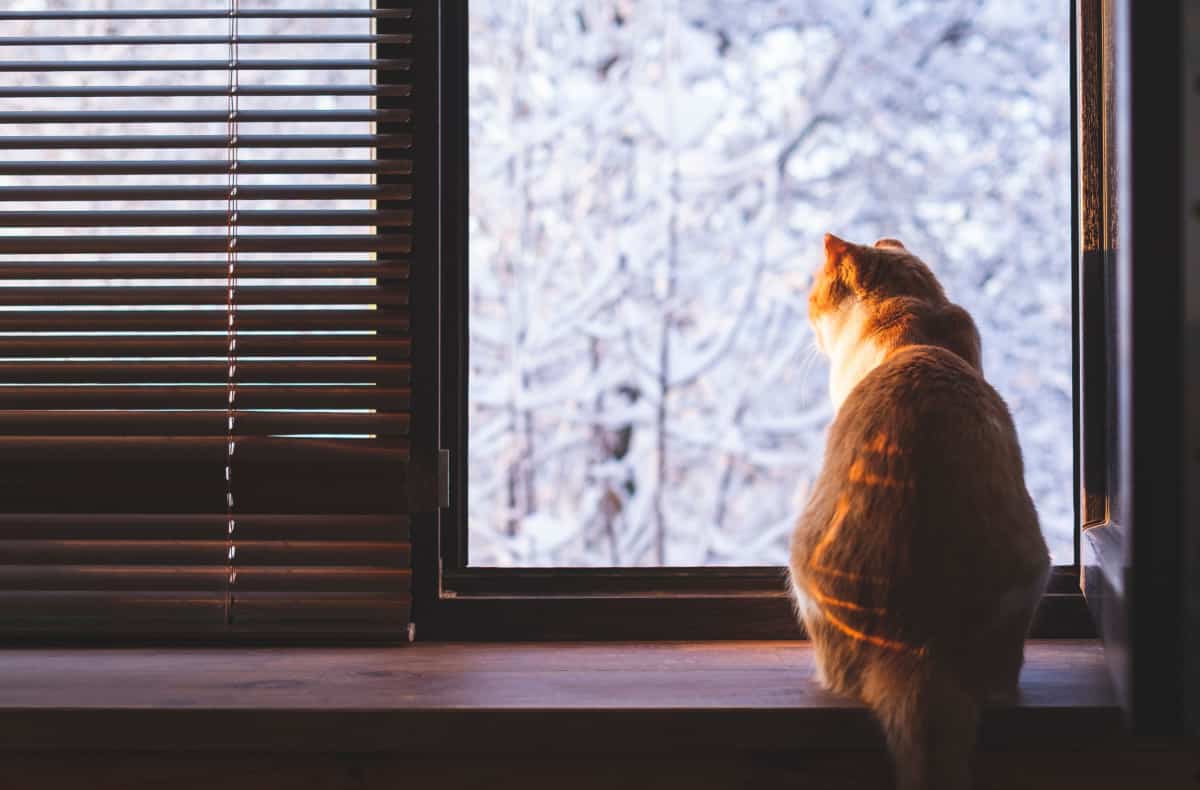
Think about your friends and family members and determine which home would be best for your cat.
Here are a few things to consider when looking for a new potential owner for your cat:
Cat Or Pet Experience
If someone has no experience with cats, that doesn't necessarily disqualify them from being able to care for your cat.
However, it does help to know that the person taking your cat when you're no longer there to care for them knows what they're doing.
Size Of Household
Some cats do better in smaller households without too many hands and feet.

If your cat has lived alone with you her whole life, adjusting to a ten-member home could be overwhelming.
This is particularly true if your cat wasn't around children, and their new home has several.
Number And Type Of Other Pets
In addition to the number of people in the house, you also need to consider pets. Some cats are fine with other felines, while others prefer to be the one and only cat in the house.
You'll also need to look at the other types of pets someone has. Will your cat attempt to eat them? Will they attempt to eat your cat?
If you're not sure how well your cat will get along with someone else's pets, you may want to arrange some "pet play dates" to see how things go.
Size Of Home
Most cats do well in even the smallest of spaces since they don't require a lot of exercise and can get it in a limited area.
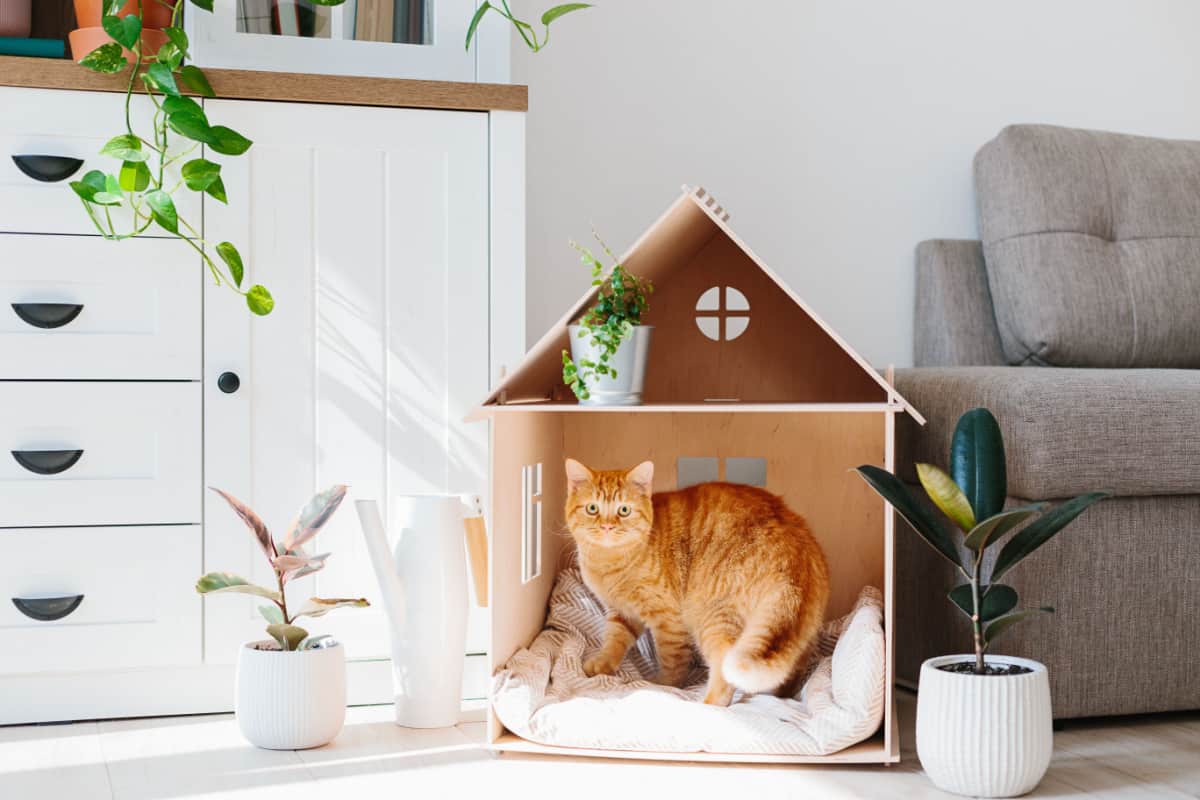
However, cats do like to have at least one area to call their own.
So, if there are too many other people and pets to allow your cat to have her own space, you may want to move on to other candidates.
Home Environment
No matter how many people and pets are in a home, every home has its own environment. Some are louder, with people constantly coming and going.
Others are quieter with much more consistency. Make sure your cat's personality is matched to the home environment they're going into.
Otherwise, she'll end up being over- or understimulated.
Financial Ability
If someone doesn't have the financial ability to care for your cat the way you want them to, you may need to find someone else to care for them.
However, this may not be an issue since you can provide financially for your cat's care after your death.
Step 2: Formally Ask Beneficiary
Once you've figured out who's best suited to care for your furry friend after you're gone, you must formally ask them to take on this role.
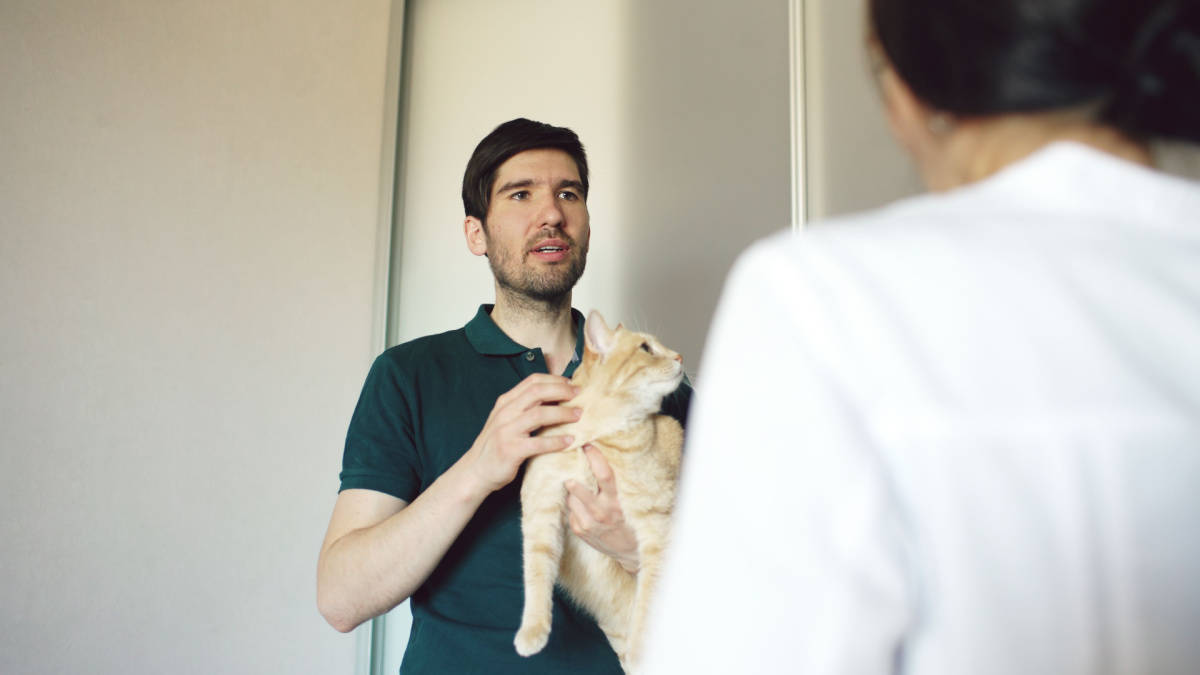
We recommend taking them out for a meal and addressing the issue there.
Let them know that you've carefully considered your options and feel they would be the best caregiver for your cat.
Then, ask them if they're willing to take your cat should you die. If they agree, you can move onto the next step. If they don't, you'll need to pick the next best person on your list.
Step 3: Arrange For Care
Now that you have your beneficiary for your cat, you need to make sure everything happens as planned since you won't be around to ensure they hold up their end of the bargain.
There are four ways to arrange care for your cat after your death.
Based on what you know about the person you found to take your cats, you can pick an option that best works for both of you.
1. Make An Informal Arrangement
Making an informal arrangement is the easiest option. By asking a trusted person to care for your cats, you've already established an informal arrangement.
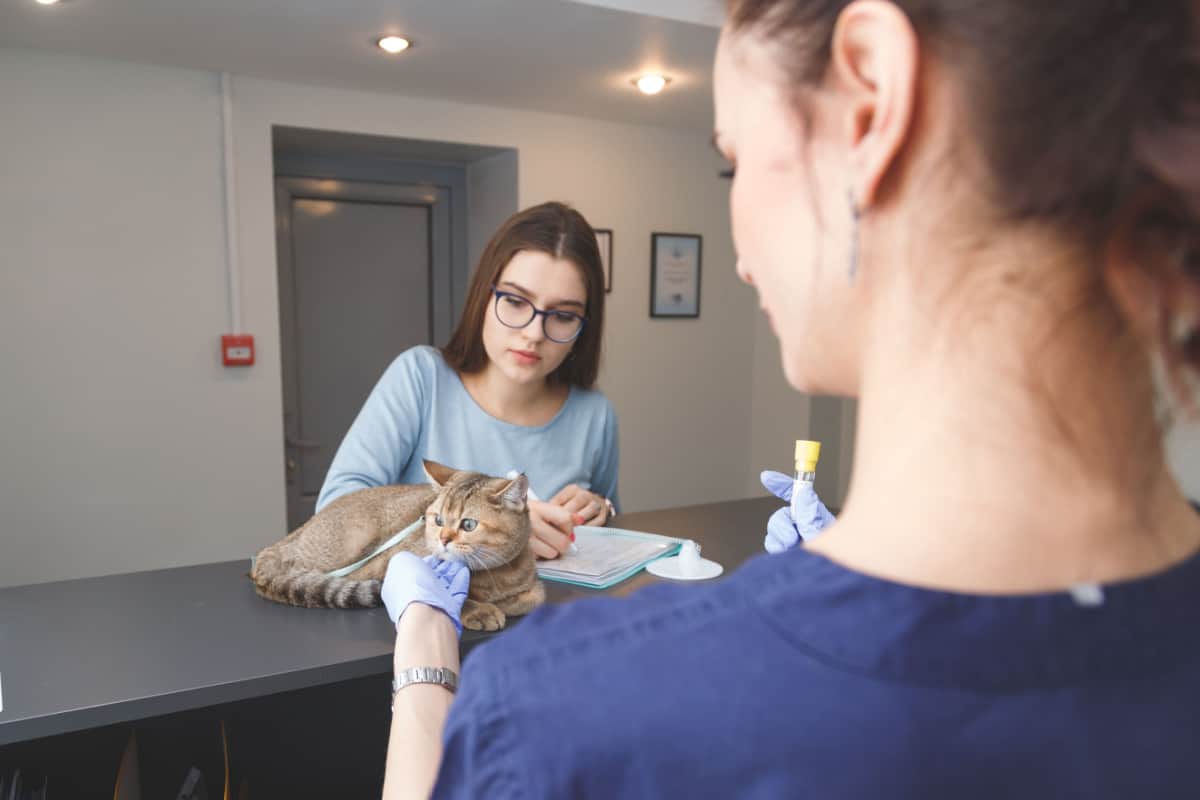
However, many prefer to formalize it in writing. Without a written agreement, the other person could change their mind, and there's no way to guarantee the quality of care your cat receives
SIGN UP FOR THECATSITE'S EMAIL UPDATES >
2. Include A Will Provision
If you're drafting a will, consider adding a provision for your cat. It's an affordable option, as it's part of your existing will-making costs.
You can allocate funds to your cat's future caregiver to help cover their care expenses. However, the money is given as a lump sum with no assurance it will be used for your cat.
Also, there's an administrative process before executing a will, leaving your cat's care uncertain during this period.
Including a provision in your will is ideal if you trust your chosen caregiver and want to prevent disputes over your pet's custody after your death.
It clearly indicates your preferred caregiver for your cat.
3. Create A Pet Protection Agreement
Creating a pet protection agreement is a step above adding a provision in your will. You can easily do this yourself for typically less than $100.
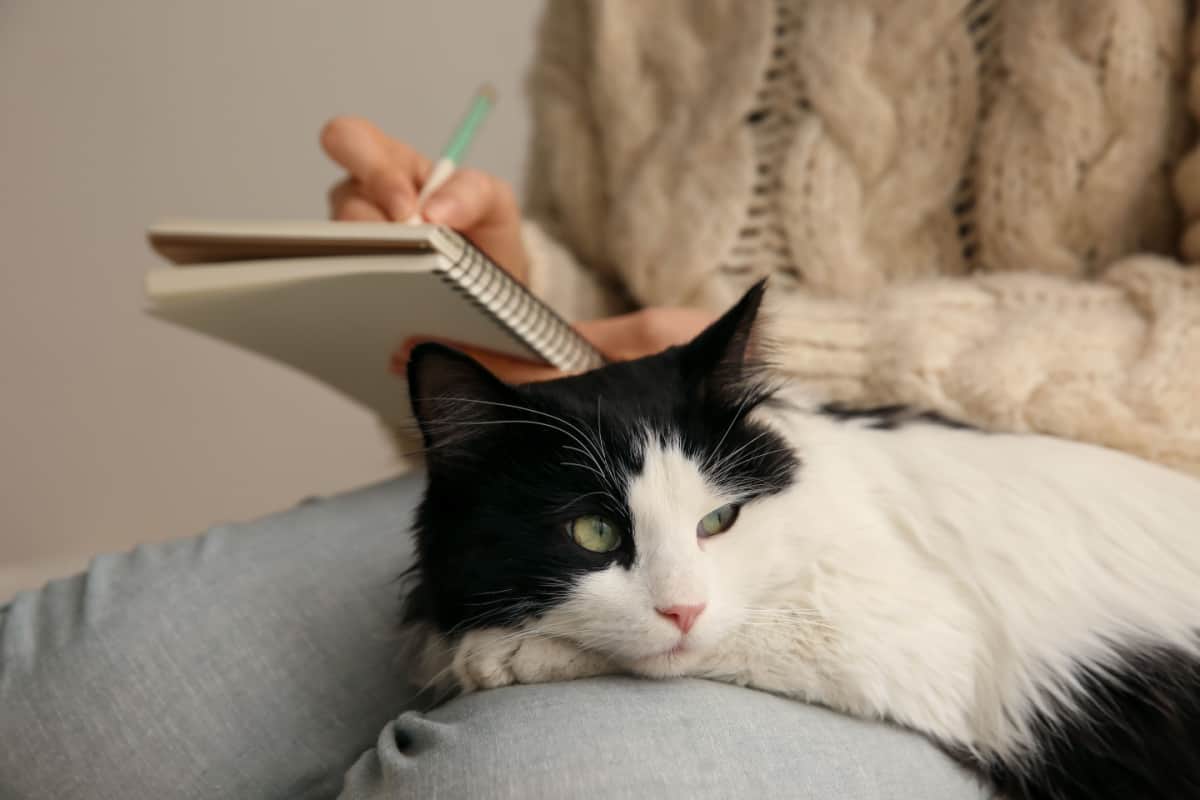
It gives you more control than a will provision and can also cover situations like serious illness or injury.
While this option offers better protection for your cat, there's another option that provides even more control. Learn more about setting one up on Legal Zoom.
4. Set Up A Pet Trust
Setting up a pet trust is the best way to ensure your cat's care before you die. It allows you to designate a caregiver and a trustee, who are legally bound to follow your instructions.
The trust provides maximum control, including monthly funds for your cat's care. This removes the financial burden from the caregiver.
The trust lets you divide responsibilities between two people, with a trustee who acts in your cat's best interest.
Though initial costs can be between $500 and $2,000, the peace of mind it offers is invaluable. To learn more about pet trusts, check out this article on Nolo.
Step 4: Create Care Instructions
Even if you're sticking with an informal agreement or will provision, you should still include as many instructions as possible for your cat's new caregiver.
This will help guide them in caring properly for your cat. With pet trusts, these instructions are legally binding.
Here are a few of the instructions you'll want to make sure you write out. When creating a pet trust, the lawyer should ask you questions to ensure all of these aspects are taken care of.
Veterinary Care
You need to start by including information about your cat's veterinary office, and where to take her in the event of an emergency.
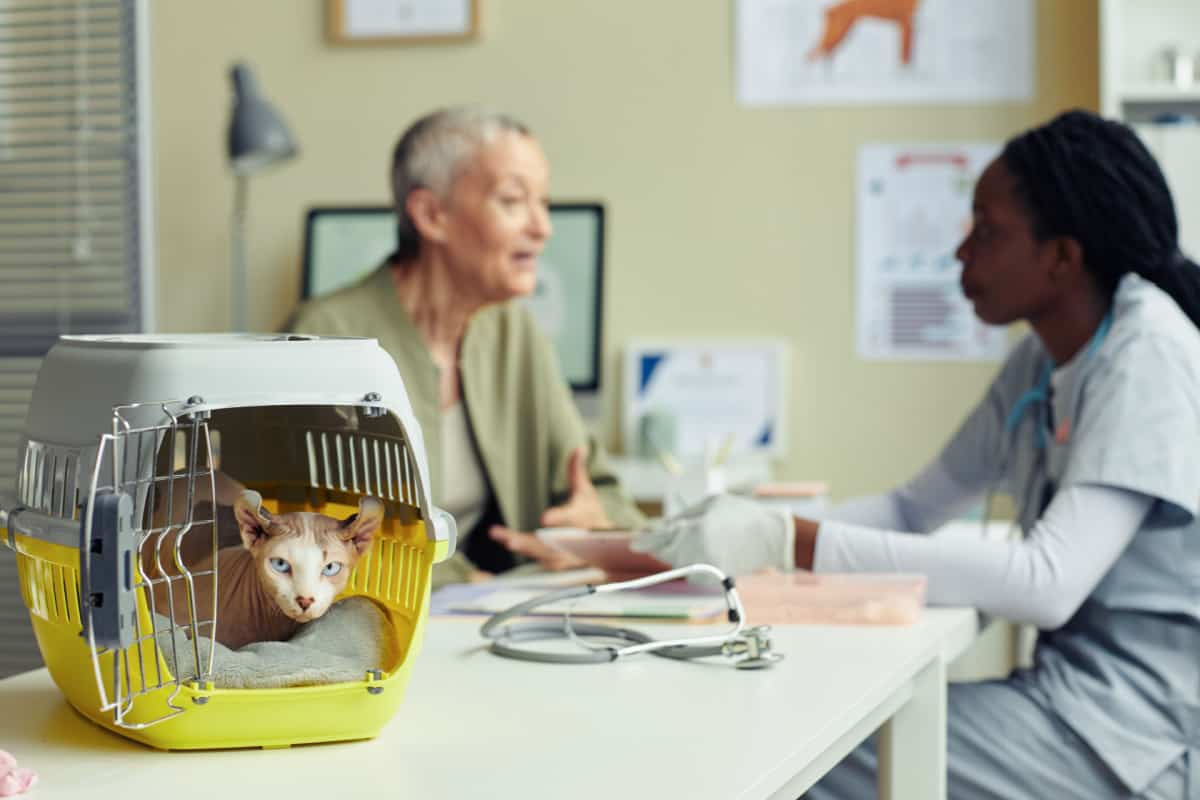
From there, you'll also want to specify what type of veterinary care they receive, and how often.
Veterinary care may include:
- Types and frequency of vaccines
- Dental cleanings
- The frequency of check-ups and what these include (bloodwork, medication, etc.)
- Flea prevention
Nutrition
When preparing care instructions for your cat, you need to answer several questions. What type of food does your cat eat? How often and how much do they eat at each meal?
What treats do they enjoy, and how many treats should they receive daily? Include this information in your cat's care instructions.
Specify the food your cat currently eats, and suggest a few alternatives in case that food becomes unavailable after you die.
Exercise
Cats need exercise as much as the next living creature, and you can specify how much exercise they get and what type.
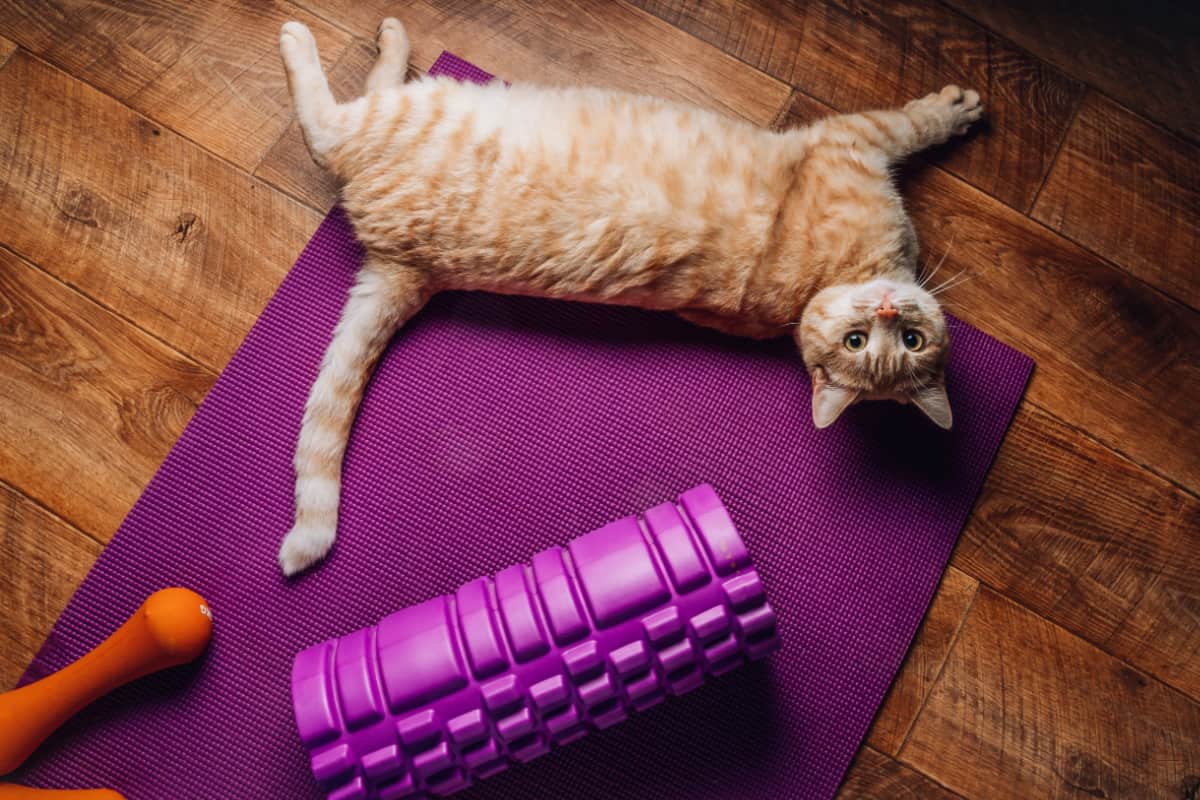
For example, if you take your cat on a 20-minute walk around the neighborhood every morning, you can specify that your cat continues to get their daily walk.
Cat Supplies
In a pet trust, you can actively dictate the supplies a caregiver must provide for your cat.
For instance, if your cat adores a floor-to-ceiling cat tree, you can stipulate that the caregiver must provide one.
You can also actively set spending limits on these supplies and determine the portion to reimburse.
This ensures your cat continues to enjoy the same comforts even if you die.
End-Of-Life Decisions
At some point, your cat will inevitably die, hopefully after living a full life. As you plan for your own departure, consider your cat's end-of-life care.
Decide if you want cremation or burial for your cat and determine when to consider euthanasia.
Other Preferences
Include your cat's favorite toy or catnip brand in the instructions if they have any preferences.
When establishing a pet trust, decide how to provide funds to the caregiver and the extent of oversight over their care.
Consult a lawyer when creating a pet trust to ensure you cover all aspects.
Step 5: Leave Instructions Where They'll Be Found
Once you've compiled all the necessary documents, ensure you store them in a safe yet easily accessible location.

This way, after you die, your loved ones can quickly find and follow your instructions for your cat's care without delay.
What If I Can't Find Someone to Care for My Cat?
If you can't find someone to care for your cat after you die, don't worry. There are organizations that will take your cat and find them a new forever home.
Provide detailed care instructions and include the organization's information with your important documents.
We recommend leaving a donation in your will to help these non-profit organizations continue their work in finding homes for cats in need.
How Much Money Should I Set Aside for My Cat's Care?
Determining how much money to set aside for your cat's care can be challenging. Start by calculating your annual expenses for basic supplies and veterinary care.
Estimate your cat's remaining years, assuming an average lifespan of 15 years, and multiply this by your annual expenses.
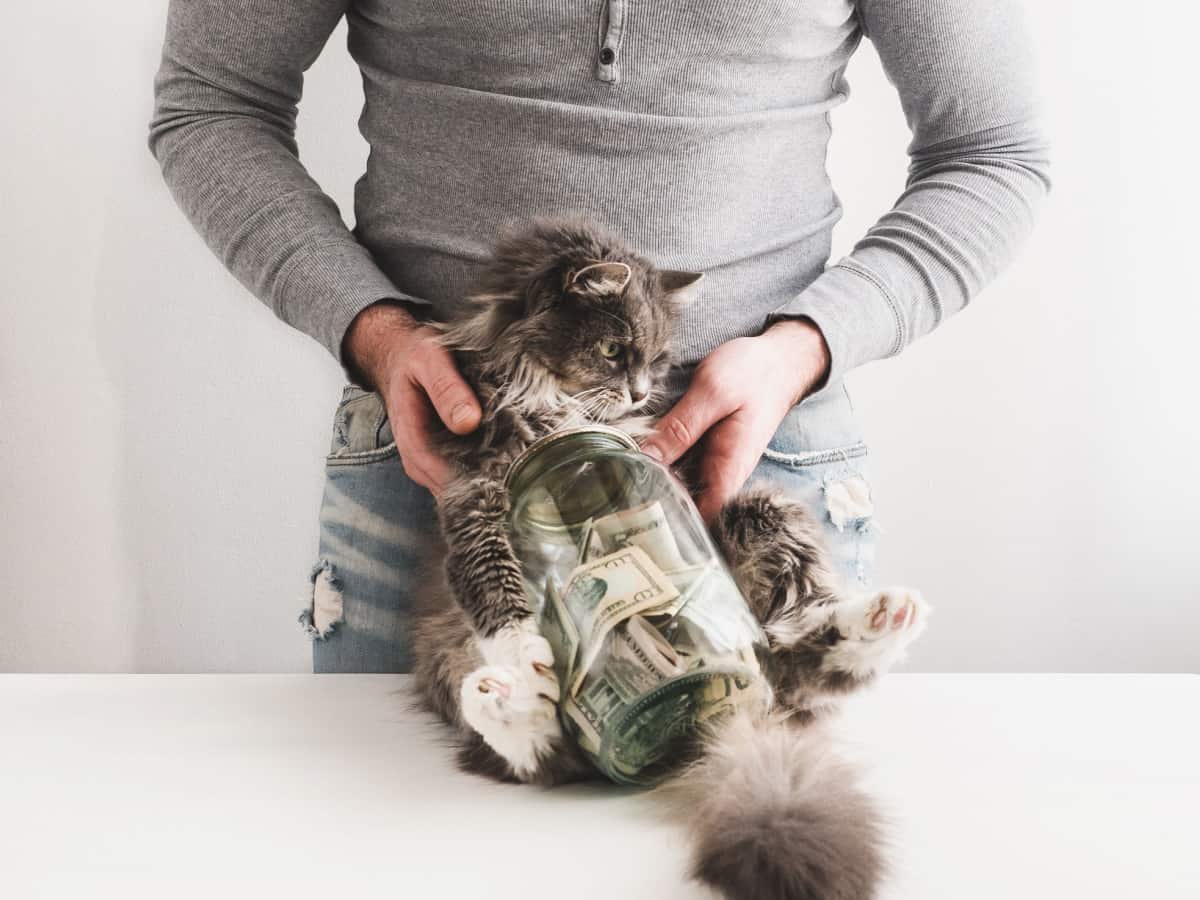
Factor in additional costs like unexpected vet visits and supplies. However, avoid setting aside excessive funds, as this may lead to contested wills.
For example, Leona Helmsley left $12 million for her dog Trouble, but after legal disputes, only $2 million was allocated for the dog's care, with the remainder going to her charitable foundation.
Final Thoughts
We hope this article helps you create a plan to protect your cat from ending up in the system when you die.
Adopting a cat means committing to their lifelong care. If you die before your cat, it's crucial to ensure they continue to receive the care they deserve.
By planning ahead, you can guarantee your cat's well-being for the rest of their life.
While it may seem complicated, it's worth the effort to know what will happen to your cat if you die first.
Additional FAQ
Written by Amy Shever from 2nd Chance 4 Pets (originally published in November 2011).
A single woman in her late 50s, with no children but five dogs and ten cats, asked if her pets could be cared for in their home after she dies.
The answer was "Yes." Attorney Peggy Hoyt worked with the client to create legal documents and instructions for a yet-to-be-named caregiver.
They formed an animal care panel, including the pet owner's veterinarian and close friends, responsible for selecting a live-in caregiver when needed.
This arrangement ensures quality care for pets when their owners die or become disabled.
Q: How Is A Live-In Caregiver Selected?
A: The animal care panel identifies candidates through; advertising in the newspaper, word of mouth, veterinarian recommendations, or other applicable means.
The panel interviews candidates and selects a person to live in the home and care for the client's pets.
If the caregiver does not work out, the panel will remove that person and hire someone else.
Q: What Safeguards Are In Place To Ensure The Quality Of Care?
A: The legal document requires periodic reporting. Additionally, the animal care panel has the right to inspect the home to ensure that the animals are properly cared for.
Q: Does The Mortgage On The Home Have To Be Fully Paid Off For This Plan To Work?
A: The home does not need to be paid off, but there need to be sufficient resources available when the pet owner dies to continue the mortgage installments or pay off the balance.
Here are a few considerations to discuss with your attorney when making these arrangements:
1. The pet owner should consider whether the live-in caregiver is paid (the value of rent is less than the value of the care services) or pays (the value of rent is greater than the value of the care services).
2. Are expenses relating to the animal the responsibility of the caregiver?
Q: What Else Should People Consider In Setting Up A Plan Like This?
A: In addition to the animal care panel, they may wish to separate the functions of animal care from asset care, by designating a trustee who is different from the people who oversee the care of the pets or actually care for the pets.
Separating these functions helps avoid any potential conflict of interest.
Q: Does The Trust Maker Also Need To Leave Money To Cover The Trustee's Costs?
A: Yes. If people don't have independent resources, the best way for them to create that wealth is through the purchase of a life insurance policy that names the trust as the primary beneficiary.
Q: How Often Should The Estate Plan Be Reviewed?
A: Any estate plan, especially one that is designed to provide for pets, should be revisited on a regular basis (annually is a good idea).
On average, people in this country update their estate plans every 19.6 years, but a person's whole composition of pets will almost certainly change in that time period.
Q: How Can People Get More Information On This Method To Ensure Companion Animals' Lifetime Care?
A: Because laws differ from state to state, we recommend that pet owners discuss pet trusts and the processes involved in setting up an animal care panel with a locally licensed attorney.
This is essential to ensure that the plan is legal in their state and that it includes necessary safeguards for trustees, beneficiaries, and caregivers.
Pet owners can locate an attorney in their area by visiting www.nnepa.com.
Pet owners with designated caregivers and trustees may want to consider the comprehensive Pet Trust Program of legacylawcenters.com.
Q: What Other Safeguards Do You Recommend?
A: Another technique we use in our planning is a concept known as trust protector.
This is an independent third party (often the attorney who drafted the trust) who has special fiduciary power.
For example, the trust protector may remove a bad trustee or change the withdrawal rates of beneficiaries.
This person may also amend the trust after the trust maker has passed away, in case the law or certain circumstances change.
Q: Do You Have A Final Recommendation For Pet Owners?
A: Keep your estate plan maintained and updated.
Four things can change concerning your estate plan:
(1) Your life, including your personal and financial circumstances;
(2) The law;
(3) Your lawyer's experience; and
(4) Your legacy, in terms of how you want to leave your assets.
By reviewing your estate plan frequently, you can be sure that your wishes will be carried out, and your companion animals will receive the quality of lifetime care you want.
SIGN UP FOR THECATSITE'S EMAIL UPDATES >
Comments? Leave them using the form below. Questions? Please use the cat forums for those!
If you care about cats whose owners might die before them, please share the image below on your social media. Your sharing shows that you care.
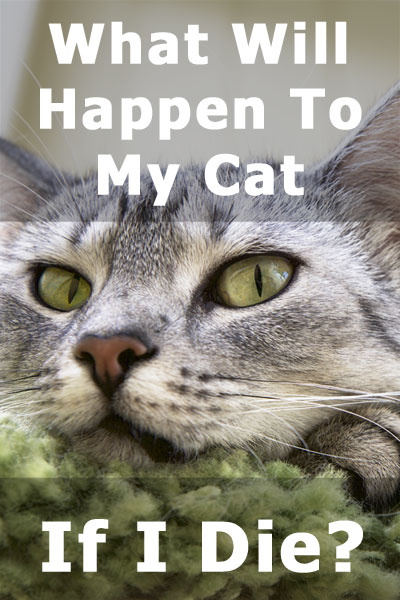
We got more interesting articles to read. Check them out below!
How Much Time Does It Take To Care For A Cat?
How To Best Take Care Of Cat Claws: Beyond Basics
Note: We may get commissions for purchases made through links on this page.



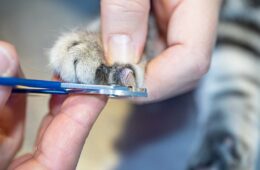
14 comments on “What Will Happen To My Cat If I Die? [Answered]”